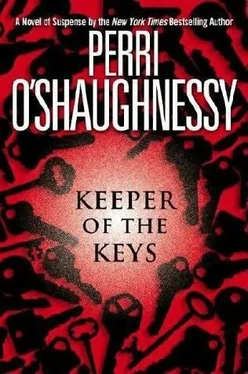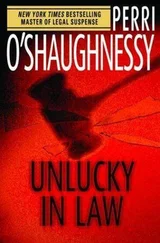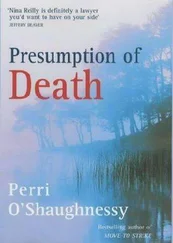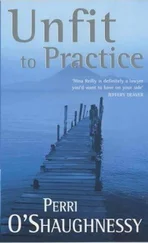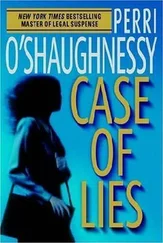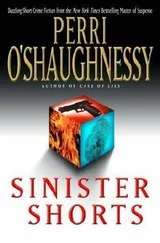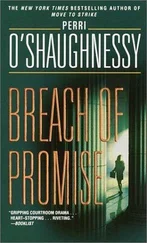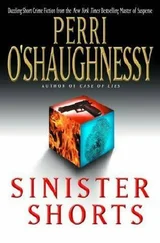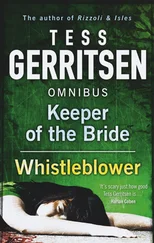She made her way out of Whittier through the maze of numbered freeways. This exercise frequently reminded her of those mazes people marked with stones that started in the center and led to some outside goal. People claimed to find the walk edifying, even spiritual. She had tried walking the labyrinths, with mixed emotions. They frustrated and angered her. If a choice had to be made, which, depending on the maze, choices did have to be made, she invariably picked the wrong route.
Kind of like picking Henry, who turned out to be so wrong for her.
Now she followed a well-worn path, and when traffic stalled, she listened to talk shows.
“I hate my father!” one tearful caller said.
“Let’s figure out why,” said the patient radio host.
The host probably had no credentials, no counseling experience whatsoever. He probably had three ex-wives and seven children, vaguely related, all wondering what love meant witnessing his mean existence and emotional detachment.
Esmé arrived at Ray’s house around seven Saturday night. Maybe he was out.
During daylight savings time, even the canyon stayed relatively light. She saw no signs of life except for the landscape lights bursting on when she stepped out of the car. She wove up the driveway, her Rockports crunching on the gravel, aware that she was not at her best.
Tonight, she wanted to tell her son the whole story, the whole sad tale of herself and her hero, Henry Jackson. How it all fell apart. How she regretted so much.
She dreaded the encounter slightly more than she welcomed it. Her power over Ray had weakened through the years. Leigh came along, a normal course of events. Leigh loved Ray; even Esmé could see it, how much Leigh loved her son. But as a mother who had invested absolutely everything in her child, she could barely stomach the change. She went to work at the grocery store every day, yes, but with what purpose? No little boy came home to her anymore needing a hug, fresh crayons, help with his science project.
Sometimes she indulged in a vision of grandchildren. Whenever she broached the topic with Ray, she got put off. “We’ll think about that when the time comes.”
In other words, Leigh didn’t want them, not ever, and Esmé could just up and die of a broken heart, for all Leigh cared.
Drinking brought up negativity. She remembered that. She must crush these unpleasant thoughts. Finally reaching the entrance to Ray’s house, she rang the bell. Nobody came.
She knocked. No one answered.
“Ray?” she called softly. Then, “Ray!” regardless of the neighbors. After waiting a polite amount of time, she gave up and took the hidden key from behind a bramble bush. She pushed the old-fashioned key first into the door lock, then into the dead bolt. Both slipped open like well-oiled musical instruments. She opened the door to his immaculate, magnificent, sterile home.
A perfectly tempered air swept over her, forcing her eyes closed. “Ah,” she said, accepting this benevolent feeling that came from money and good planning.
Replacing the key, she went into the house. Lights greeted her, turning on as if bidden. Ray adored modern technology, and at this moment, so did she. She felt so welcomed.
She poured herself a vodka from his wet bar, and looked around. She admired and hated the artwork on his walls. She peeked into his closet, but when she spilled her drink, decided she probably ought to lie down for a bit.
His sofa, worth thousands no doubt, was hard but at least had some loose pillows. She put her head on one end and stretched out on the unforgiving sofa.
She would tell all.
In a way, she couldn’t wait. All these years, she had kept her life bottled up inside so tight, corked, screwed down. Ray should know, she decided, plumping the pillow with one hand, feeling a little dizzy. He ought to know who his father was, and who his mother is.
Probably he deserved to know, although such niceties of morality seemed a little like the leaves outside, blowing in hot summer winds, untouchable unless they fell to the ground and you stomped on them. She would have a nap, and then he’d be home.
For breakfast, Ray found some food they could eat, canned pears, dry cereal with powdered milk. The pantry, located on a porch beside the kitchen, showed signs of vermin infestation. Kat, continuing to feel quite hungry after the ordeals of a haunted Idyllwild night, did not care. When Ray didn’t finish his cornflakes, she finished them.
The T-shirt sat in its bag on the couch. Ray kept away from it. Kat couldn’t stop looking at it.
“Plan of action,” Kat said. “Besides take the shirt back to the sheriff?”
“We didn’t finish searching this place. Maybe there’s more.”
“We hunt some more?” Kat said.
“Don’t want to miss anything, now that we’re here.”
“But it’s a crime scene. We shouldn’t mess it up.”
“Is it? I don’t believe it. Besides, we already slept here.”
They hunted. Kat made Ray search the small downstairs bedroom. She refused to go downstairs at all, in fact.
They tossed the place attic to foundation, finding nothing else that suggested Leigh had been there recently.
Kat found a picture album that documented many years of visits. Mr. Hubbel, not exactly a fine figure of a man these days, appeared godlike, handsome as a movie star. He water-skied, hiked, rode a bike, swam wearing a mighty tight Speedo. In occasional extras presumably taken by friends, his wife appeared alongside him, small and adorable. Leigh, young and accompanied by friends male and female over the years, grinned a camera-false smile. Kat, although frequently invited, had never managed to visit before.
At the back of a leather-bound volume on the bottom shelf of many albums, she found three pictures of Tom with Leigh.
In one, they sat together on a boat, heads inclined toward each other, hers so very blonde, his darker, his thick eyebrows furrowed, worried looking. Leigh looked up at him, and although the picture was black and white, her gray eyes appeared translucent. They sat in the stern of a speedboat, a white trail behind them, globules of water decorating both their faces. Tom gazed back at her, lovestruck. She appeared happy, without connection.
In another, they smiled into the camera, Tom, several inches taller than Leigh, standing against a desert backdrop of treeless, cracked ground. He had looped an arm over her shoulder. They looked relaxed, like two people who belonged together.
In the third and last picture, Tom was peripheral, not part of the framed group. He sat on a bench in the background, watching Leigh whoop it up at an evening party, champagne glass in one hand, a plate of hors d’oeuvres in the other. Behind her, an orange desert sky blazed. Tom, lurking in shadows, appeared to glower.
Leigh glowed like the moon, handsome young men hovering nearby.
Kat pulled out the photos and pushed them into her pocket. She shut the album.
“Find anything?” Ray called from outside.
“Nothing.”
“I have something.” He held his hands cupped as he showed her some broken nutshells.
“These haven’t been around long. I found them strewn all around under the back balcony where the blue jays hang.”
“Peanuts. She likes peanuts.”
“She sat out there eating peanuts.”
Neither of them said the obvious: maybe whoever had hurt her had sat out there, watching the jays.
“Put ’em in another bag, and we’ll bring them, too,” Kat advised. “For DNA testing.”
“You’ve made up your mind she’s dead,” Ray said. “Haven’t you?”
Kat held up her hands.
“I want to spend a few more hours in the area before we go back,” Ray said. “Please. I can’t go back quite yet. It’s too awful. That shirt. I need some kind of hope.”
Читать дальше
